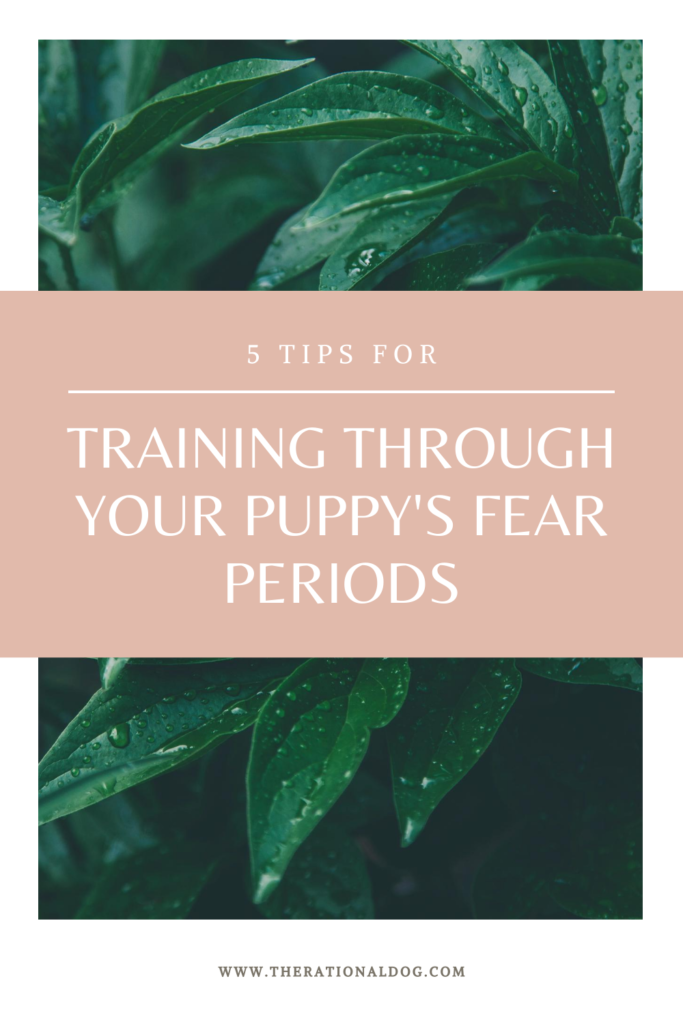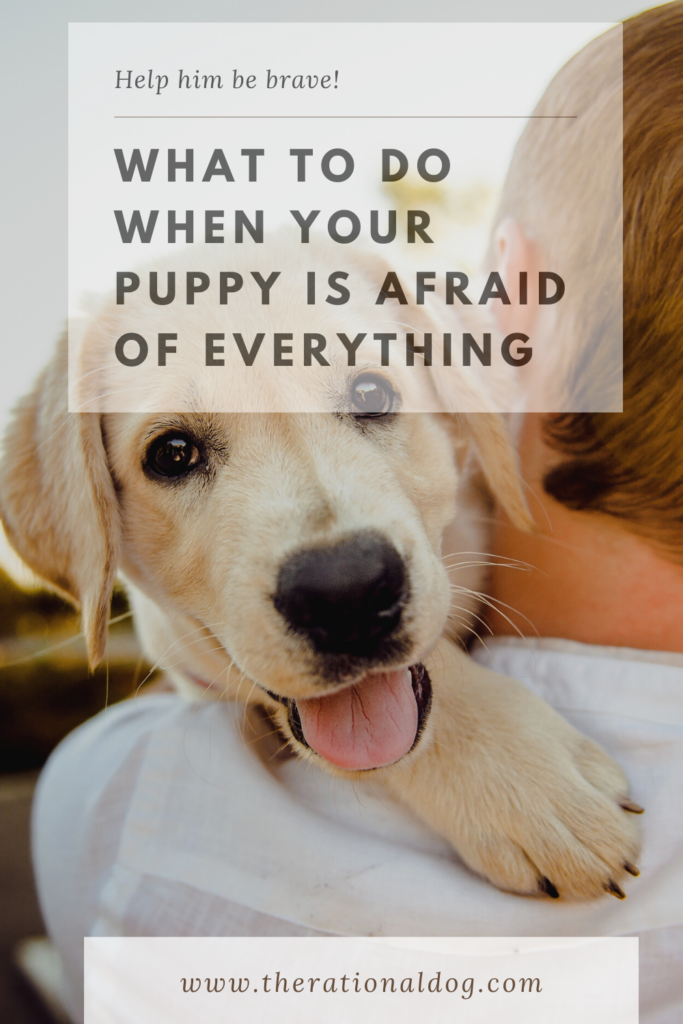I don’t know if you’ve ever been through this before, but I am right in the middle of a developmental tar pit with my puppies right now. It seems like every new thing they encounter is probably a death trap, according to them. They are skittish around new people, where before they were friendly and outgoing. They are jumpy with new noises, new sights, new smells, where just a week ago, I could take them anywhere without a problem.
Sound familiar? If it does, then your puppy may also be going through what we in the business call a Fear Period. They’re completely normal, completely natural, and a total pain in the butt. Here are some things that you can expect from your puppy’s fear periods, and 5 simple tips to help your puppy through this trying developmental stage.

Firstly, what is a “Fear Period?”
A fear period is an extremely common stage of development that almost every dog will go through at least once, but more commonly twice, as they grow up. The first fear period will usually hit between 4-6 months of age, and the second somewhere around 8-10 months.
During these periods, your dog may suddenly seem to be reserved, skittish, or sometimes downright terrified of things that did not phase him before at all. Where as a young puppy, your dog had no problem approaching strangers, or walking past a barking dog, now your puppy will flatten to the ground, or try to get away.
The most important thing to know about fear periods is that your dog will almost always simply GROW OUT OF THEM! Great news, right? But that doesn’t mean that you should simply throw your dog to the proverbial wolves and let them get the wrong (scary) opinions about the things that frighten them. Which is why we are going to talk about how to support your puppy through these times.
What to do during your puppy’s fear periods…

Don’t make a big deal out of things.
When your puppy reacts to something, your first reaction may be to gather him up, coddle him, and help him to feel safe. If you do this, though, you’re actually teaching him that there is, in fact, something to be afraid of, when in reality there isn’t.
Instead, stay calm and matter of fact. If your puppy is terrified, just tell him what it is that he sees, and move on with your outing. “That’s a truck, let’s keep walking.” You don’t need to drag him up to scary things and force him to eat treats. Just let him know what’s going on, and continue on with your day.
Don’t stop taking your puppy places.
You may also be tempted to stop taking your puppy out into the great, wide world when it seems that he’s afraid of every moving thing that he sees. However, if you do this, your dog will never learn that those things are NOT a big deal (see the above paragraph). Instead, he will have no experience with them at all, and will not know how to react when you do bring him out. Keeping him sheltered will do more harm than good.
Instead, continue to bring your puppy out into the world, but bring him out with the expectation that he is an observer right now, not a player in the game of new things. Bring him to stores, but keep him on the fringes so that he can watch the hustle and bustle, rather than bring him right into the muddle to deal with chaos. Bring him to the park, but keep him to the trails and away from new dogs or people so that he can watch and see that new things are not scary from a distance.
Give lots of treats for bravery.
When your puppy DOES want to approach someone, or explore something that he thought was challenging before, be sure to have plenty of treats and praise waiting for him. Be ready to reward that bravery to help create those positive connections with new things.
Give your puppy time to adjust to new situations.
You may be eager to give your puppy all of the rewards for being so brave, but you want to let your pup adjust to new people, situations, and places in his or her own time. Let them observe things from the fringes for a few minutes, until they warm up and start to want to engage with what’s going on.
If you are too eager to bring your puppy into the fray, they may get overwhelmed, and have a poor association with that situation in the future. Stay matter of fact if your puppy does get overwhelmed, and simply bring them away from the action a little bit, until they’re calm and ready to join in again.
Know that your puppy will grow out of it soon.
The biggest ray of hope that I can give to you as a puppy owner is that your pup is going to grow out of this on his own! He’s not going to be skittish, worried, or tentative forever, and he will surprise you by popping out of this stage just as abruptly as he went into it!
If you follow these steps through both of your dog’s fear periods, you will have a puppy who grows into a confident dog, one who has experienced things through the proper socialization techniques, but was not overwhelmed as a puppy.
A great article filled with information that I can use now and in a few months.
Awesome! I love all of the great stuff you’re doing with Disney!